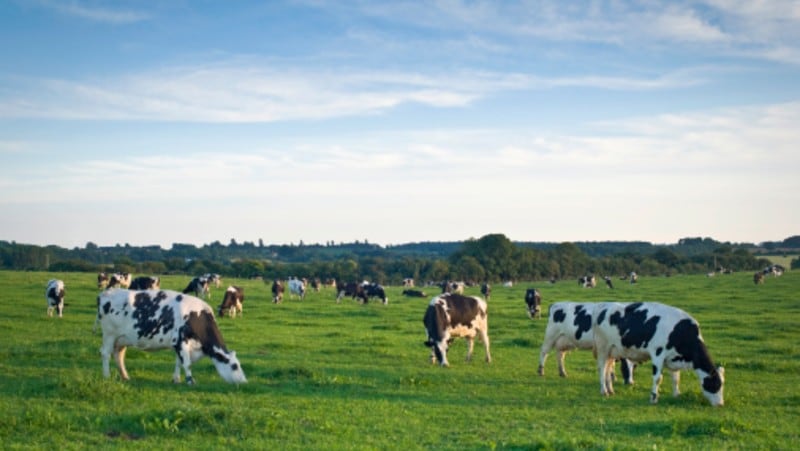Earlier this year, Australian Prime Minister Scott Morrison has stopped short of fully committing to net zero emissions for Australia by 2050 and former Deputy Prime Minister Michael McCormack hinted that the country ‘could’ remove agriculture from any net zero emissions strategies, leading to debates over the country’s commitment to sustainability goals.
Despite the ongoing uncertainty, the Australian meat and livestock industry body and standards regulator Meat & Livestock Australia (MLA) has reaffirmed its commitment to its Carbon Neutral by 2030 (CN30) target, promising no net release of greenhouse gas (GHG) emissions into the atmosphere.
“[This commitment is important to the industry to] stay ahead of current and future consumer [expectations] regarding environmental credentials [such that] red meat producers can stamp their mark in a competitive global protein market,” MLA Manager – Sustainability Innovation Doug McNicholl told FoodNavigator-Asia.
“Demonstrated commitment to environmental stewardship, through initiatives such as CN30 [underpins] our position as a responsible producer of high‑value, clean, safe and natural protein.”
When asked about the achievability of CN30 within just 10 years, given the vast number of initiatives that the overall strategy is undertaking across the beef, lamb and goat industries from meat production to meat processing, McNicholl stressed that this is entirely possible – with the right settings in place.
“CN30 is achievable with industry commitment, the right policy settings and new investment in research, development and adoption,” he said.
“[From the point of view of industry], Australian red meat producers have a long and proud history of adapting to environmental and market conditions. [Plus], carbon neutrality doesn’t need to come at the cost of livestock numbers - CSIRO analysis has shown it’s possible to achieve CN30 without reducing herd numbers below the rolling 10‑year average (25 million cattle, 70 million sheep and 0.5 million goats).”
McNicholl’s confidence also stems from the fact that the MLA is developing specific tools and technologies for the industry – the main segment which commitment needs to be captured - with the main purpose of these as achieving the CN30 target.
“For producers, we are working on a range of tools and technologies for them to cost‑effectively reduce emissions and boost the value of red meat sales,” he said.
“These include carbon accounting tools for a start so tool so they [have a point to start to] determine their net GHG emissions position, identify strategies to reduce these emissions and improve carbon storage on‑farm; [as well as R&D] into better supplements and feed options e.g. marine macroalgae which can help to substantially reduce enteric methane emissions.”
Political pressures
MLA’s approach is in fact in sync with PM Morrison’s own sentiments – in a previous public speech, he said that: "The key to meeting our climate change ambitions is the commercialisation of low emissions technology [as opposed to carbon taxes]."
However, Morrison has been under continuous pressure from both members of his own party - particularly those representing inner-city voters keen on sustainability initiatives - as well as his fellow country leaders from the US, EU and UK to take bolder emission reduction actions, made all the more difficult by Australia’s strong reliance on agriculture
Morrison has so far hedged any commitments to net zero emissions by 2050, a common goal that nations such as the UK and EU have set, saying Australia is looking to achieve this as soon as possible, ‘preferably’ by 2050, with technology and not legislation at the helm – leaving some room for doubt as to how seriously Australia is taking its sustainability commitments.
This has been particularly so for the meat industry in recent times, as forrmer Deputy PM Michael McCormack wanted to get agriculture removed from the net zero emissions target. Equally if not more worrying is that the country’s recently-elected Deputy PM and Minister for Agriculture and Water Resources Barnaby Joyce is a well-known climate change sceptic.
Joyce has already made it clear that economic prospects are going to be a much stronger argument for him as compared to any plans to handle climate change, so whether MLA’s CN30 target and investments into this will again be brought under scrutiny remains to be seen.
“[If] the best deal for regional Australia is to make sure that we secure their jobs, is to make sure that we secure their industries, is to clearly understand the dynamics of an Australian economy, as opposed to a Danish one or a German one, [that’s] the view that I’ll support,” he said after his re-election.
On the point of political pressures, MLA did not comment directly on the ongoing political situation citing that this is not within its remit, but McNicholl stressed that there are multiple benefits to be found not just for the industry but the country as a whole if CN30 is achieved.
“Whether it’s reducing net emissions, boosting productivity or developing new markets, these CN30 activities deliver multiple benefits to producers, consumers and the community,” he said.
“The government will also benefit from the knowledge that the red meat industry is making a substantial contribution to Australia’s international commitments on climate change.
“We will be working with peak industry councils and government to set clear and stable policy mechanisms underpinned by science-based evidence.”
Working with government will mean working with the Minister of Agriculture – namely, Joyce – and at the moment it is hard to believe that policy mechanisms under this remit would fall cleanly in line with CN30 – so as it is, the MLA clearly has their work cut out for them.





